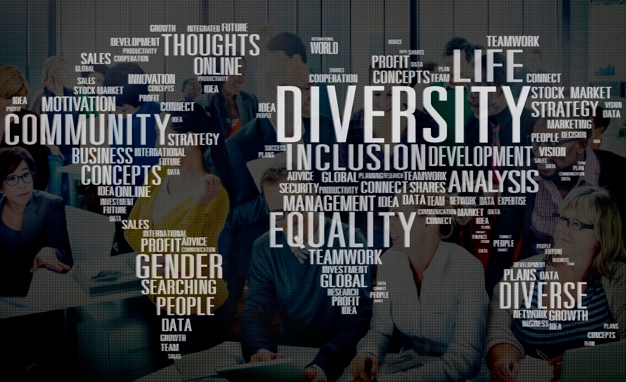
We live in a complex globalized world that’s in the midst of a digital revolution, and that means massive changes for humanity. Digitally networked societies bring technological, economic, and human challenges – and at the same time, they’re faster and more powerful. On the one hand, there’s isolationism, nationalism, and the risk of complex cyberattacks, and on the other hand, there are vast opportunities for people, institutions, and companies. The energy business is also currently undergoing a technological revolution. And the more diverse the challenges in this dynamic environment, the more varied our responses to them need to be. And those responses should come from an entire network that crosses company and industry boundaries. It’s only by joining forces globally that we can make the most of the opportunities offered by digitalization and protect our critical infrastructures.
By Dr. Judith Wunschik, Chief Cyber Security Officer and Global Head of Cybersecurity, Siemens Energy
Diversity is a factor for success. In a team, the more diverse the members’ backgrounds are, the more varied their ideas, thinking, and solutions will be – and the greater their prospects for success and achievement. That finding has been reconfirmed in a study by the Boston Consulting Group that’s in the midst of a digital revolution, and that means massive changes for humanity. Digitally networked societies bring technological, economic, and human challenges – and at the same time, they’re faster and more powerful. On the one hand, there’s isolationism, nationalism, and the risk of complex cyberattacks, and on the other hand, there are vast opportunities for people, institutions, and companies. The energy business is also currently undergoing a technological revolution. And the more diverse the challenges in this dynamic environment, the more varied our responses to them need to be. And those responses should come from an entire network that crosses company and industry boundaries. It’s only by joining forces globally that we can make the most of the opportunities offered by digitalization and protect our critical infrastructures.
Diversity is a factor for success. In a team, the more diverse the members’ backgrounds are, the more varied their ideas, thinking, and solutions will be – and the greater their prospects for success and achievement. That finding has been reconfirmed in a study by the Boston Consulting Group (BCG). The BCG team found “a strong and statistically significant correlation between the diversity of management teams and overall innovation. (Surveyed) companies that reported above-average diversity on their management teams also reported innovation revenue that was 19 percentage points higher than that of companies with below-average leadership diversity – 45% of total revenue versus just 26%.”[1]
I also think that greater diversity has a very positive influence on our collaboration. The way we deal with others is friendlier, more empathetic, and less biased than in less diverse teams. But even though it’s a recipe for success, people don’t practice diversity everywhere, even though it’s a major strength in our globalized world. Companies can, and should make the most of that strength, especially if they have to ensure secure critical infrastructures – like the reliable, resilient generation and distribution of energy.
In the cyber world, many roads lead to Rome
But from a manager’s viewpoint, it’s not always easy to put diversity into practice. It means more than just achieving a good balance between genders, although that’s tricky enough in itself. A diverse team reflects our complex world and is open to everyone, no matter their religion, ethnicity, culture, or social group. Today diversity in business also includes employees of different ages and different educational backgrounds, sexual orientations, and disabilities. So, diversity naturally also entails inclusion. But in practice, this means that to fill openings from a pool of diverse candidates, you first need an appropriate selection of people to choose from…To read the full story, subscribe to CISO MAG.
This story first appeared in the March 2021 issue of CISO MAG.
About the Author
 Dr. Judith Wunschik is the Chief Cyber Security Officer and Global Head of Cybersecurity for Siemens Energy since October 2019. She is accountable for securing Siemens Energy’s business operations, products, data, and assets as well as for ensuring compliance with cybersecurity regulations. She is serving as a thought leader for cybersecurity as well as an advisor to Siemens Energy’s senior leadership on cyber risks related to products, services, and operations. In her current professional role, she is building the future global cybersecurity capabilities for Siemens Energy, including Information Security Operations, Supply Chain Security Management, and Product & Solutions Security Services.
Dr. Judith Wunschik is the Chief Cyber Security Officer and Global Head of Cybersecurity for Siemens Energy since October 2019. She is accountable for securing Siemens Energy’s business operations, products, data, and assets as well as for ensuring compliance with cybersecurity regulations. She is serving as a thought leader for cybersecurity as well as an advisor to Siemens Energy’s senior leadership on cyber risks related to products, services, and operations. In her current professional role, she is building the future global cybersecurity capabilities for Siemens Energy, including Information Security Operations, Supply Chain Security Management, and Product & Solutions Security Services.
Previously, Dr. Wunschik held senior management roles in the European banking sector, most recently as Chief Information Security Officer for ING Germany and ING Groep N.V. in Amsterdam. She is highly experienced in working with deeply skilled expert groups and is a renowned public speaker and valued member of prestigious international security committees. Dr. Wunschik holds a Ph.D. in Solid State Physics and Computational Theoretical Physics from the University of Erlangen-Nuremberg.
Disclaimer
Views expressed in this article are personal. The facts, opinions, and language in the article do not reflect the views of CISO MAG and CISO MAG does not assume any responsibility or liability for the same.










